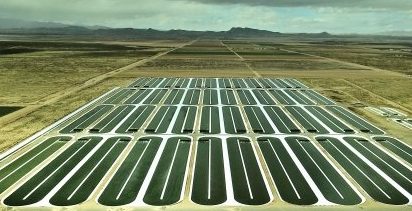Turning waste into value. Biotrend is a leading player in Municipal solid waste management sector, focusing on sustainable recovery of wasted resources. The company operates 14 waste management facilities in Turkey based on long-term concession agreements. While energy is currently the main source of revenue, Biotrend invests on circular economy and we expect non-energy revenues, mainly from recovery of recyclable material, refused derived fuel sales, waste disposal (gate fees) and sale of carbon certificates, to account for 28% of total revenues by 2025E vs 4% in 2021.
Energy generation is 100% covered by state-guaranteed YEKDEM mechanism. Biotrend has an installed power capacity of 96.4 MW as of July 2022 (81.8 MW based on biogas and 14.6 MW based on biomass), which is expected to reach 166 MWe by 2025E. YEKDEM is a feed-in tariff mechanism designed to promote renewable energy investments by offering guaranteed purchase of electricity at a fixed USD-based price for 10 years, which is USD133/MWh for Biotrend (USD 138/MWh for Aydın Çine biomass plant of Biotrend during 2021-2026) with an average remaining period of 7.4 years under YEKDEM. We note that biogas feed-in tariff remained 17% above spot market electricity prices in 1H’22 period. We believe YEKDEM offers high visibility and reduces downside risks for Biotrend as we estimate USD380mn in cumulative EBITDA from energy through the end of feed-in tariff periods (2030-end).
Waste separation investments to create new revenue sources. Biotrend processes c.20% total land filled municipal waste in Turkey. In general, up to 7% of municipal waste is estimated to have economic value. Biotrend plans to set up waste separation facilities to recover recyclable waste (glass, plastic, pet bottle, tin, nylon etc.) at 7 of its plants (İnegöl, İzmir-Harmandalı, İzmir-Bergama, Balıkesir, Uşak, İzmir-Menderes and Aksaray). We estimate annual waste volume for these 7 plants would reach c.3.5mn tons by 2026E, which means up to 200K tons of recyclable waste that could create annual revenue of USD25-30mn. Biotrend also evaluates waste-to-polymer chemical recycling projects, which have the potential to deliver much higher margins and value-add.
Carbon credits from methane reduction represent large hidden value. For every ton of landfill methane reduced, biogas plants are generally able to issue 25 tons of CO2 certificate, which indicates larger revenue potential from carbon credits for biogas plants compared to other renewables. In Turkey, 15% of the total carbon trading volume in voluntary carbon certificate market was obtained from biogas projects. We expect carbon trading to gain pace as EU’s “border tax” should support demand for emission credits. Turkey also plans to launch its own emission trading system by 2024-25. Biotrend claims that it already obtained 2.6mn tons of CO2 certificates and its operations would continue to result in annual carbon reduction of 3.0 million tons of CO2 equivalent. Given that price of voluntary carbon certificates is trending higher, we calculate NPV of carbon credit sales of Biotrend could reach USD110mn (assuming long-term carbon price of USD15/ton).
Initiating with a TP of TL13.10/share, offering 55% upside potential. We value Biotrend using sum-of-the-parts method where we calculate DCF valuation for each activity of business (electricity, waste separation, carbon trading). We estimate that energy business accounts for 44% of EV, whereas waste separation and carbon credits account for 21% and 27% of our valuation, respectively. The stock trades at EV/EBITDA multiples of 8.3x/5.1x based on our 2022/23 estimates. On the other hand, international peer multiples for waste management companies indicate that Biotrend trades at a discount of 34% based on 2023E EV/EBITDA multiples.
Y. F. Securities Research
